Las Vegas Valley flu season less severe than last year’s so far
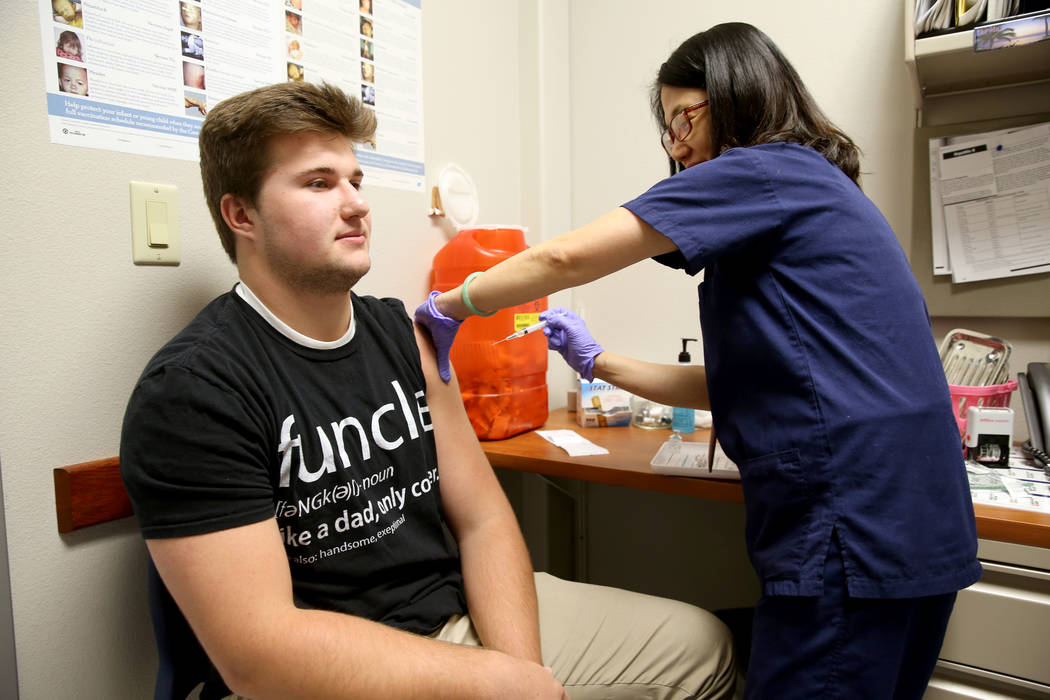
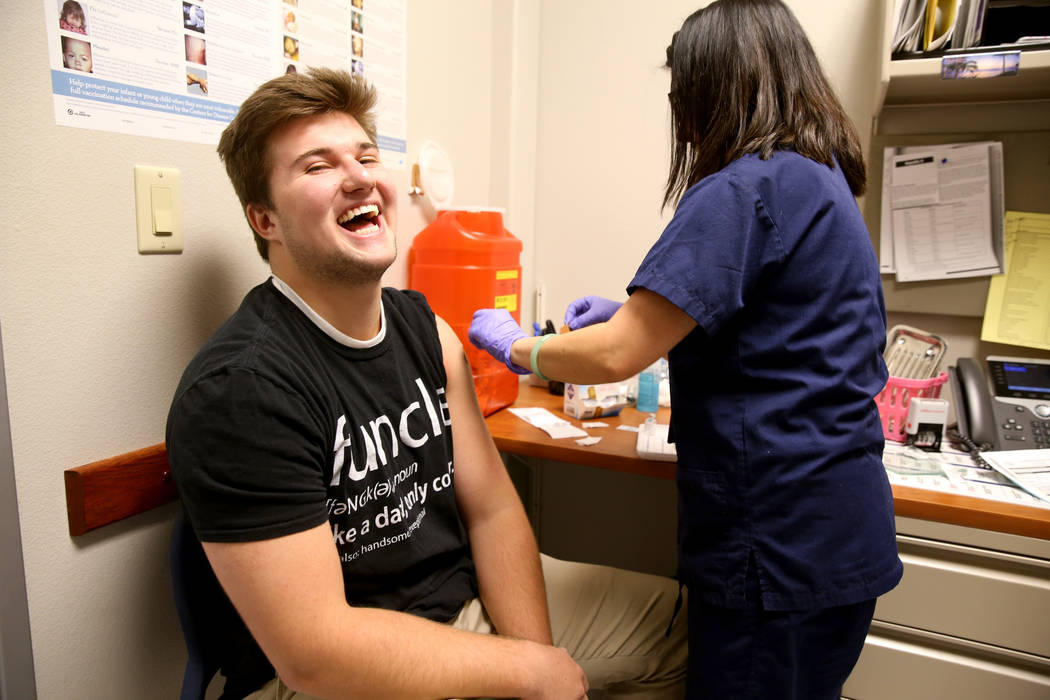
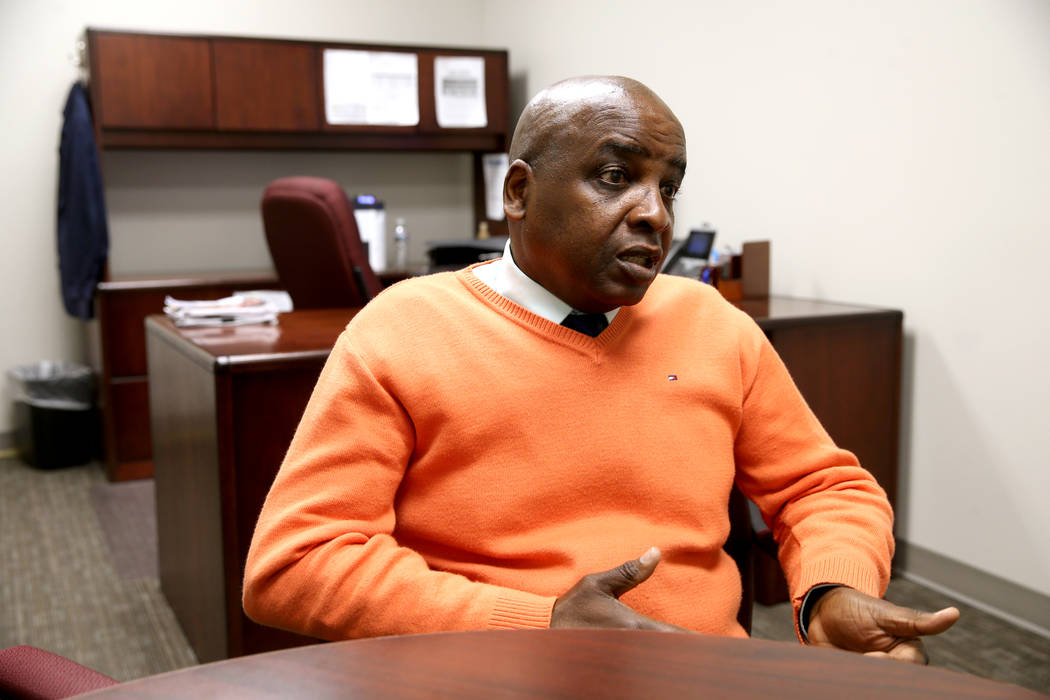
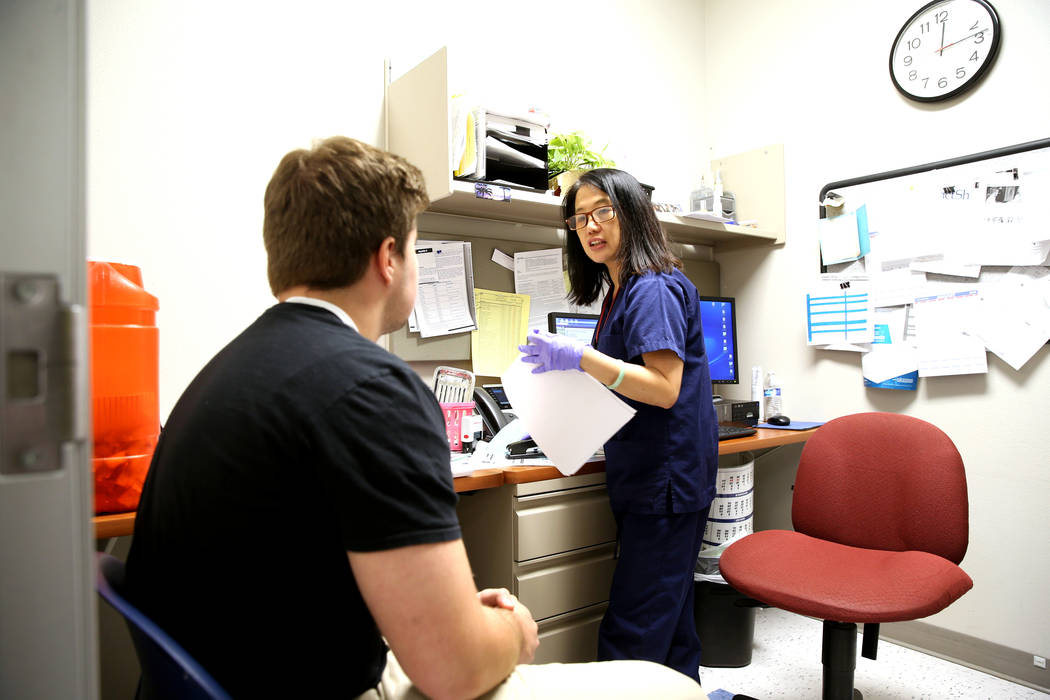
This year’s flu season is shaping up to be less severe than last year’s, according to data from the Southern Nevada Health District, which show there have been no deaths linked to the flu so far.
By comparison, 24 Las Vegas-area residents had died of the flu by late December 2017.
According to the Health District, 330 people were hospitalized with confirmed cases of the flu between October and late December 2017, compared with 68 in that period this flu season. Of the 24 who died in that 12-week span last year, two were children.
That flu season was among the worst on record nationwide and in Southern Nevada, experts said. Not only were flu strains particularly virulent, causing more flu-related complications, but the season ramped up earlier than usual, killing 27 children around the country by the new year. 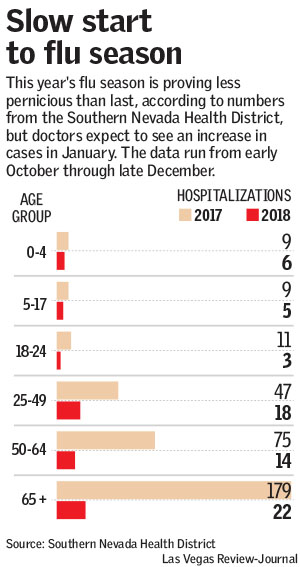
Dr. Jaime Primerano, Sunrise Hospital and Medical Center’s emergency room medical director, said she’s cautiously optimistic that this season could harm fewer Las Vegans.
“As a flu season, we’ve been slower, but we’re still anticipating the large January surge,” she said.
Dr. Fermin Leguen at the Health District said figures from the past couple of weeks show an increase in confirmed cases. Data for the last week of 2018 is set to be published on the district’s website Friday.
“It looks like this year, maybe December, it’s starting to peak here,” he said.
Less virulent strain
Though emergency room staff at Valley Hospital Medical Center have seen fewer patients who have flu-related complications, a steady stream of patients with milder cases have tested positive for the flu, said the hospital ER’s assistant medical director, Dr. Mike Barnum.
“It may be that it’s just not a terribly virulent strain this year,” he said. “That would explain the fortunate lack of really severe complications and deaths.”
But as colder weather grips the valley, ERs tend to see more flu-related illness. No, the cold itself can’t cause the flu, Barnum said — but bad weather outside sends people indoors, where they’re more likely to be exposed to contagious coworkers, classmates, friends and family.
“Especially in Nevada, where the cold weather tends to come in a little bit later, that pushes back the onset,” Barnum said.
Vaccination recommended
There is one tried-and-true — though not surefire — method for staving off the flu: getting vaccinated.
“It is not too late to get a flu vaccine,” Primerano said. “We saw cases up until April in 2018.”
Getting vaccinated protects you and those around you who can’t get the shot — including the immunocompromised — from infection. It also can ease symptoms if you happen to contract the flu, experts say, though it takes about two weeks for your body to build immunity.
Other good hygiene habits, such as hand-washing and covering a cough using your elbow instead of your palm, can help prevent the virus from spreading, Leguen said. And if you’re sick, stay home.
“We’re still pretty much in the early portion of the season,” Primerano said. “Time will tell.”
Contact Jessie Bekker at jbekker@reviewjournal.com or 702-380-4563. Follow @jessiebekks on Twitter.
Flu season intensifies nationwide
The Centers for Disease Control and Prevention reported an increase in flu-related illness by late December, which is categorized as “high” in New York City and nine states.
As of late December, 11 children had died in conjunction with the flu, down from 20 by that time last year, CDC data showed.
Those under 5 and over 65 are at highest risk of developing flu-related complications, in addition to those with certain pre-existing conditions and women who are pregnant, according to the CDC.













